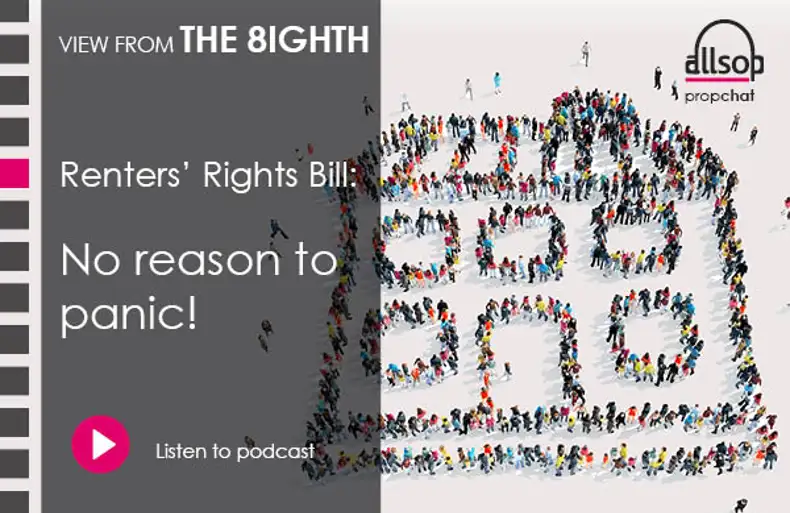Blog | Valuation | Leasehold & Freehold Reform | Rental Reform | Residential Property
Leasehold, Commonhold & Rental Reforms - key changes & their potential impact

The property landscape in England and Wales is undergoing significant changes, with the introduction of new legislation aimed at enhancing leaseholder rights and reforming the rental sector.
What are the key aspects of these reforms and their potential impact on property owners and tenants?
The Leasehold & Freehold Reform Act 2024
This act obtained Royal Assent on 24 May 2024 and became law on 25 July 2024, introducing several changes to strengthen leaseholder rights. However the Act has yet to come fully into force and could take years, with further consultation and legislation needed.
The first steps that have been introduced primarily include:
- Removal of the two-year ownership requirement for lease extension or freehold enfranchisement claims
- Expansion of Right to Manage (RTM) eligibility to buildings with up to 50% non-residential space from 25%
- Reduction of financial burdens on leaseholders initiating RTM claims with the default position is that RTM companies and their members are not liable for the landlord’s costs incurred
- Transfer of RTM dispute resolution to the First-tier Tribunal (FTT)
These reforms aim to simplify the process and potentially reduce costs for leaseholders.
Anticipated future changes in the Leasehold and Freehold Reform Act 2024 include:
- Increasing the standard lease extension term from 90 years to 990 years
- A ban on grant or assignment of certain long residential leases of houses
The removal of marriage value in lease extension calculations and fixing capitalisation and deferment rates for premium calculations has been widely talked about. Marriage value can represent a large portion of a premium payable by leaseholders (with leases under 80 years unexpired only), especially in midterm leases of approximately 50 - 79.99 years unexpired.
However freeholders have won the right for a Judicial Review and a hearing has been set and is to take place before the end of July 2025.
The High Court held that the freeholders had an arguable case regarding the following as it breached landlords’ private property rights under the Human Rights Act 1998:
- the cap on existing ground rents
- the payment of marriage value when enfranchisement/lease extension rights are exercised and the,
- removal of freeholders rights to recover reasonable legal and valuation costs on enfranchisement or lease extensions claims.
If the High Court decision is against the freeholders; they could seek permission to appeal to the Supreme Court.
Commonhold White Paper
The government has published a White Paper outlining plans to promote commonhold as an alternative to leasehold ownership.
Key proposals include:
- Banning new leasehold flats
- Simplifying the conversion process of existing leases to commonhold
- Enhancing homeowner control over property management
- Introducing mandatory reserve funds and clearer governance structures
The government intend to publish a draft Leasehold and Commonhold Reform Bill in the second half of 2025, which could also include regulating ground rents for existing leaseholders.
Renters' Rights Bill 2024
This bill aims to overhaul the private rental sector.
- Abolition of 'no-fault' Section 21 evictions
- Transition from Assured Shorthold Tenancies to periodic tenancies
- Restrictions on rent increases
- Ban on rental bidding wars
- Establishment of a Landlord Ombudsman
- Creation of a Private Rented Sector Database
- Right to keep pets
- Prohibition of discrimination
- Enforcement of Decent Homes Standard
The bill also introduces stricter penalties for non-compliant landlords, with fines ranging from £7,000 to £40,000 for various offences. Tenants could claim up to 24 months' rent through Rent Repayment Orders for certain landlord violations.
The bill is passing quickly through parliament and is due to make Committee State on 22 April 2025. It is expected to become law in mid-2025.
Implications & Considerations
These reforms present both opportunities and challenges for property owners and tenants:
- Leaseholders may benefit from enhanced rights but face complex decisions regarding lease extensions and enfranchisement
- Landlords must adapt to increased regulations and potential financial implications
- Tenants gain stronger protections, but may face a reduced rental market as further landlords exit the market
- The shift towards commonhold ownership could significantly alter the property landscape
As these reforms unfold, property owners, tenants and industry professionals must stay informed and prepare for the evolving regulatory environment.
The long-term impact on the property market remains to be seen, but these changes would undoubtedly represent a significant shift in property rights and management in England and Wales. While aimed at addressing long-standing issues and inequalities, their full impact will only become clear as they are implemented and tested in practice.

Podcast: With £1billion of sales at auction three Allsop experts say how they would invest £10m in 2025
Want to know more or would simply like some advice? We hope you find this podcast useful. If you want to know more about topi...

Fit for Purpose: How UK Gyms Are Adapting to Changing Consumer Demands
The gym sector is considered one of the strongest leisure markets with a growing emphasis on a healthy lifestyle change in so...

Podcast: Renters' Rights Bill - No reason to panic!
In this latest podcast, Jack is joined by Kelly Smith and Nicola McKernan from Allsop Letting & Management to discuss the pro...

Podcast: The challenge of affordable student accommodation; is there a solution?
Want to know more or would simply like some advice? We hope you find this podcast useful. If you want to know more about topi...